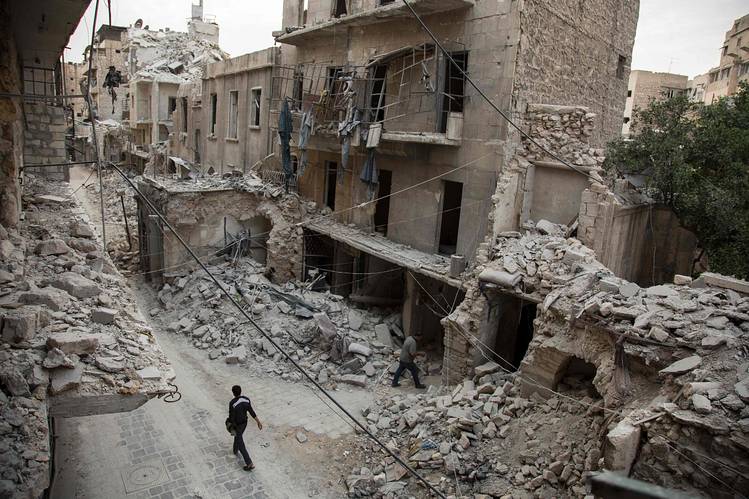The news always seems to be full of talk about events around the world that gives us pause for thought. Last week it was the havoc wreaked in Haiti by Hurricane Matthew (why do we name them? Is it to make them seem friendlier, less scary?) and this week it’s news again of the truly awful situation in Aleppo and the constant bombing of the east of the city and the villages around it. The loss of life and the images from both events are truly distressing and alarming.
The situation in Syria can, and probably should, make us angry for a whole host of reasons. How can Russia give not only succour, but military assistance to the murderous regime of President Assad? Why has the west stood by and allowed the slaughter of innocent people to carry on for so long while apparently taking so little action? Why do we tolerate the political position that makes a friend of the enemy of my enemy regardless of the morality or lack of humanity of that “friend”? Why do our leaders so often engage in rhetoric that tars a whole group of people with the same brush so that now any action the West might take in the region feels like waging war on Islam? Why do we stand by while political leaders create fear by blaming racial groups, or religious groups, or political groups for the problems faced by our nations and our world? Why do we sell arms to nations with dreadful human rights records? Why do we train their armies? Why can our leaders not see how wrong that might be? Why will the nations of the West refuse to take responsibility for their past actions creating a refugee situation that is now out of control – and for good reasons? I could go on for there are many more questions that we can ask of our leaders, our multinational businesses and ourselves. And I confess that I have no idea how to answer these questions – or at least not in a way that could even come close to bringing about lasting change in the our world.
The situation in Haiti seems simpler. Surely it was just a freak of nature? But there are issues here too. The situation in Haiti was as bad as it was because of the abject poverty of that nation. The infrastructure, the social provision, the ability to respond quickly and effectively is simply not available. It is a fact of poverty whether experienced by a nation or an individual that poverty is a trap. Once you are caught in it it is enormously difficult to get out. So questions are raised about how the world should address poverty in nations such as Haiti. Most of the population of Haiti are descended from slaves so there are questions too about how we allow our history to continue to enslave whole societies even today. We need to wonder about how much the devastation of hurricanes such as Matthew is directly caused by global warming and what we need to do to inspire our leaders and the leaders of the big corporations to address the issue before it is too late – and if it’s already too late how we ameliorate the effects on the most vulnerable nations.
The situation seems a hopeless one. I will not despair though. As a Christian I believe that we can find hope for our world in our reflections on the ways in which past generations have experienced the actions of God. Our Old Testament readings at the Eucharist of late have been focusing on the writings of the prophets. The situations faced by the people of Israel were often desperate and the prophets could often be harsh in their criticism of the unacceptable morals and the lack of justice that they saw in their society but ultimately they always trusted in God to act to restore as well as punish. Their message is always one of hope – and ours must be too. Jesus told to us to read the signs of the times (Luke 12.56-57). He instructs us to understand what is just and what is unjust. That is what we need to do today. We need to speak out against injustice and wrong dealing and hold those in authority to account (that needs a whole other blog to unpack). It is not hard to spot the injustice and immorality in our world today, which I think was probably Jesus’s point; what is hard is knowing what to do about it, but doing nothing must surely not be an option.
All that is necessary for the triumph of evil is that good men do nothing. These words are often attributed to Edmund Burke (perhaps wrongly) but they remain true whoever first said them. We must never do nothing about the evils in our world, but neither must we tolerate our political leaders doing nothing, and still less allow them to collude with evil.
We must always believe that evil can be overcome and good triumph – and act as if that is what we believe. Why else would read the signs of our time?
